 If you are constantly taking lukewarm showers, it’s because you are not getting enough hot water from the water heater heater. Water heater issues are frustrating because they have a multitude of causes. It’s a huge inconvenience for everyone in your home. If you’re getting frustrated with a lack of hot water, call on our team at Johansen & Anderson Inc. for water heater repair in Joliet, IL.
If you are constantly taking lukewarm showers, it’s because you are not getting enough hot water from the water heater heater. Water heater issues are frustrating because they have a multitude of causes. It’s a huge inconvenience for everyone in your home. If you’re getting frustrated with a lack of hot water, call on our team at Johansen & Anderson Inc. for water heater repair in Joliet, IL.
Are You Not Getting Enough Hot Water from Your Water Heater?
September 10th, 2018As Summer Winds Down, Pay Close Attention to Your AC
August 27th, 2018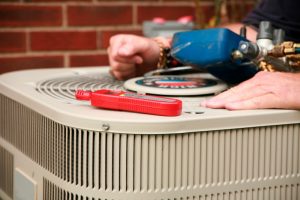 Although your air conditioning has performed well through a long summer, it’s important to monitor the quality and performance of your AC as the season ends. Even if you get annual maintenance, it’s common for the scorching temperatures of summer to have impacted your air conditioning system. It’s always a good idea to have a routine check-up at the end of the summer to prevent future breakdowns. We can help! Our team at Johansen & Anderson Inc. has experience with all types of Bolingbrook, IL AC repair and routine maintenance.
Although your air conditioning has performed well through a long summer, it’s important to monitor the quality and performance of your AC as the season ends. Even if you get annual maintenance, it’s common for the scorching temperatures of summer to have impacted your air conditioning system. It’s always a good idea to have a routine check-up at the end of the summer to prevent future breakdowns. We can help! Our team at Johansen & Anderson Inc. has experience with all types of Bolingbrook, IL AC repair and routine maintenance.
Why Air Conditioners Overheat
August 13th, 2018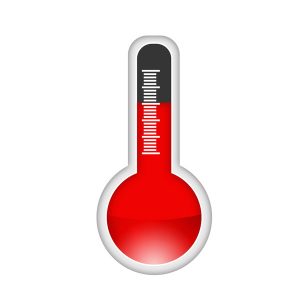 Late summer is the time period when air conditioning systems are at the highest risk of suffering a malfunction. It’s not just that this is the time in the summer when the heat level is the highest, but that air conditioners have already done an immense amount of cooling, often starting up in late April and putting in work almost every day after late June. Even with the best regular maintenance from professionals (a service we offer), an AC is in danger of overheating and failing during August and September.
Late summer is the time period when air conditioning systems are at the highest risk of suffering a malfunction. It’s not just that this is the time in the summer when the heat level is the highest, but that air conditioners have already done an immense amount of cooling, often starting up in late April and putting in work almost every day after late June. Even with the best regular maintenance from professionals (a service we offer), an AC is in danger of overheating and failing during August and September.
What causes this overheating? It isn’t necessarily the heat—there are other culprits that may lead to an AC shutdown because it’s overworking.
Can I Put More Refrigerant Into My AC on My Own?
July 30th, 2018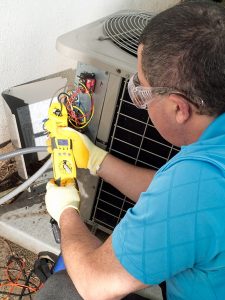 We can answer this question in two simple responses:
We can answer this question in two simple responses:
- No, you can’t
- You don’t need to*
Homeowners often ask this question about refrigerant because of a basic misunderstanding about what refrigerant is and what it does. We’re going to go into more detail to address the question because it helps people grasp how air conditioning systems work, and because it can help alert to a serious AC repair issue.
The Ducts May Be Why Your AC Costs So Much to Run
July 16th, 2018 You expect to pay more on your electrical bills during the height of summer because you have to run the air conditioning system during most days. The compressor in the AC—the heart of the system that is responsible for starting the cooling cycle—draws on large amounts of electricity when it runs.
You expect to pay more on your electrical bills during the height of summer because you have to run the air conditioning system during most days. The compressor in the AC—the heart of the system that is responsible for starting the cooling cycle—draws on large amounts of electricity when it runs.
However, have you noticed that your electrical bills this summer seem, well, much higher than normal? More than you would expect based on how much you use the air conditioner? Inflated utility bills are often warnings that there’s a problem in the HVAC system placing excess stress on the air conditioner. The issue may be inside the AC, but many people don’t realize the source could be in the ductwork.
Air Conditioning vs. Heat Pump: Choosing Between the Two
July 2nd, 2018![]() The summer has started, and you’ve made the discovery that your old air conditioner is not getting the job done. Time for it to retire to the scrap heap. What should you have installed in its place?
The summer has started, and you’ve made the discovery that your old air conditioner is not getting the job done. Time for it to retire to the scrap heap. What should you have installed in its place?
“That’s kind of a silly question,” you say. “Another central air conditioner, of course!”
We’re not arguing that you don’t need a new air conditioner for your house. But there’s an option for air conditioning that comes with heating as well. It’s not the standard combination of an air conditioner and a furnace, which is what you probably already have. It’s a single unit called a heat pump, and it’s an air conditioner that can switch how it works so instead of moving heat out of your home, it moves heat into the home.
Window AC Units: Here’s Why You Should Get Rid of Them
June 18th, 2018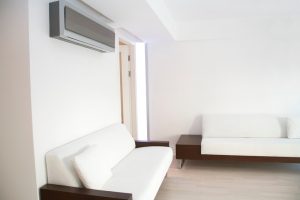
A ductless AC unit—a great replacement idea.
The invention of the compact window air conditioning unit in the 1950s was a significant advance in home comfort. Until then, only expensive central systems could provide homes with mechanical air conditioning, and most houses didn’t have a place for the ducts necessary to transport the conditioned air. With window ACs, almost anyone could have cooled air sent into their rooms.
That was then, this is now. Central air conditioners are more affordable than ever, and even homes that don’t have space for a central air conditioner system with ducts have the option for a ductless mini split system. There’s just no good reason to stick with window air conditioners—and plenty of reasons to tear them out and have HVAC professionals fix your home with central air. Below are some of the drawbacks of sticking with window ACs for your home.
These Two Simple Steps Will Save You Money on Cooling This Summer
June 4th, 2018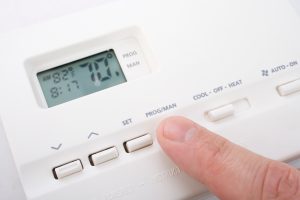 Let’s face it—it’s tricky to maintain a balance of saving money with your air conditioner without letting your home turn into an oven. Running your AC less often is the quickest way to cut down on high electrical costs over the summer. But running your AC less is also the quickest way to have your family turn on you and start warring over the thermostat.
Let’s face it—it’s tricky to maintain a balance of saving money with your air conditioner without letting your home turn into an oven. Running your AC less often is the quickest way to cut down on high electrical costs over the summer. But running your AC less is also the quickest way to have your family turn on you and start warring over the thermostat.
There are plenty of ways you can cut down on your cooling costs this summer with your air conditioner in Lockport, IL. We want to focus on two basic ones—and they’re both connected to the thermostat. They’re easy steps: the first one is something you can do yourself without much effort, and the second one only requires calling our office to make an appointment.
Have You Scheduled Annual AC Maintenance Yet?
May 21st, 2018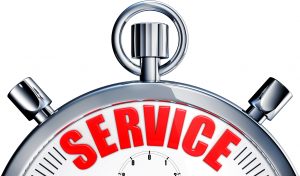 Ready to leave behind the cold weather for good—or at least for the season? Before you answer, think about your air conditioning system. Is it ready for the hot weather? Because if it isn’t, then you won’t be either! Any home air conditioner needs to have regular maintenance from HVAC professionals each spring. If you want to beat out the hot weather and have an AC that can handle the hottest days without breaking down or wasting energy, call our team today and arrange for an AC tune-up and inspection.
Ready to leave behind the cold weather for good—or at least for the season? Before you answer, think about your air conditioning system. Is it ready for the hot weather? Because if it isn’t, then you won’t be either! Any home air conditioner needs to have regular maintenance from HVAC professionals each spring. If you want to beat out the hot weather and have an AC that can handle the hottest days without breaking down or wasting energy, call our team today and arrange for an AC tune-up and inspection.
Can a Ductless Mini Split Really Get the Job Done?
May 7th, 2018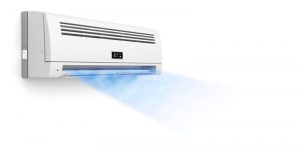 If you’ve been looking around for a new air conditioner or heat pump installation for your home, you’ve probably run across the option for installing a ductless mini split heat pump. There are a number of excellent benefits to installing a ductless air conditioning/heating system. If you’re planning to build a new home or are renovating your current home, a ductless system is one of the best choices available because it removes the need to find room for ducts.
If you’ve been looking around for a new air conditioner or heat pump installation for your home, you’ve probably run across the option for installing a ductless mini split heat pump. There are a number of excellent benefits to installing a ductless air conditioning/heating system. If you’re planning to build a new home or are renovating your current home, a ductless system is one of the best choices available because it removes the need to find room for ducts.
But you may have hesitated about using a ductless mini split because you aren’t sure if it can actually keep your home cool in summer and warm in winter. We understand why you might feel reluctant: going from years of using a conventional central heating and cooling system that uses ducts to a system that runs from smaller air handlers posted in different rooms sounds like it’s a risk. Can a ductless mini split really keep up with the weather extremes here in Illinois?
